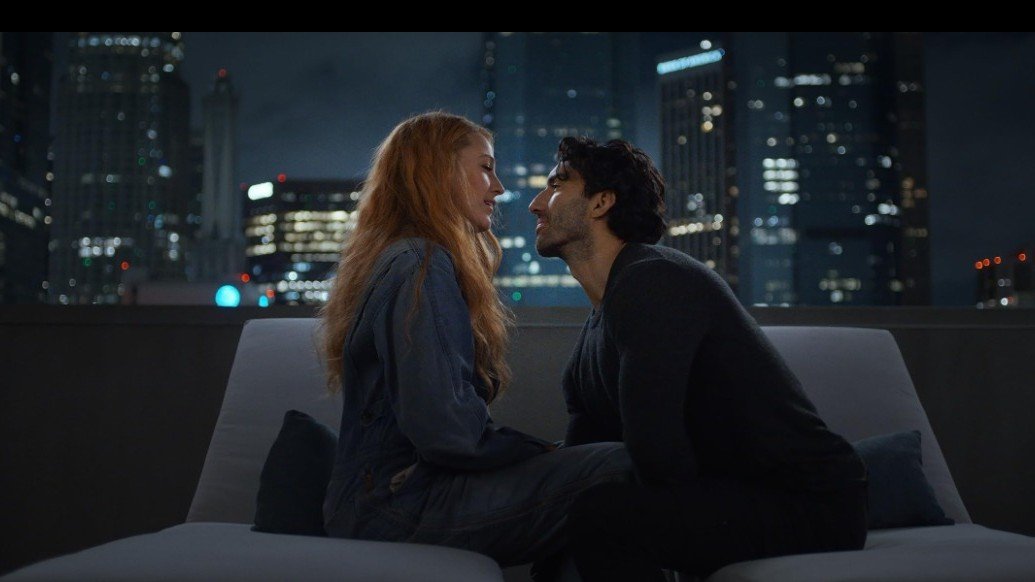Title: It Ends With Us
Director: Justin Baldoni
Cast: Blake Lively, Justin Baldoni, Jenny Slate, Hasan Minhaj, Kevin McKidd, Brandon Sklenar, Amy Morton
Where: In theatres near you
Rating: 3 stars
In a world where romantic comedies have perfected the art of sugar-coating even the bitterest of realities, this film comes as a jarring reminder that not all love stories are dreamy escapes. Directed by Justin Baldoni, who also stars as the charming yet dangerously flawed Ryle Kincaid, this adaptation of Colleen Hoover’s best-seller plunges us into the turbulent waters of love, fragile bonds, and the unspeakable agony of domestic abuse.
The narrative is a carefully constructed emotional rollercoaster, designed to pull us into the orbit of its characters before shattering our hearts just as theirs break. The film starts innocuously enough, with Lily Bloom, played with heartbreaking nuance by Blake Lively, standing at the funeral of her father—a man she cannot bring herself to eulogize. This raw, unfiltered moment sets the stage for a story that is both beautiful and bruised. The film’s structure mirrors Lily’s journey, lulling us into a sense of security with the promise of romance before ruthlessly unravelling into a stark portrayal of domestic turmoil.
As Lily embarks on a new chapter of her life in Boston, opening her dream business and falling for the enigmatic Ryle, the narrative weaves together past and present, using flashbacks to reveal the traumas that haunt her slowly. This dual timeline not only deepens our understanding of Lily’s choices but also intensifies the emotional stakes. We’re not just watching a love story unfold—we’re witnessing the gradual cracking of a seemingly perfect facade.
Borderlands Review: Star Power Isn’t Enough To Save Eli Roth’s Latest
Blake Lively’s performance is a revelation, her portrayal of Lily Bloom is both endearing and devastating. She captures the emotional whiplash of a woman caught in the crossfire of love and abuse, making it almost impossible for viewers not to root for her, even as she makes decisions that defy all logic. Her chemistry with Baldoni’s Ryle is electric. Still, it is the subtle cracks in their relationship—Ryle’s simmering temper and his subtle manipulative charm—that begin to fray the edges of their seemingly perfect romance.
But where the film excels in portraying the complexities of abusive relationships, it falters in giving its characters the depth they deserve. Despite a runtime that exceeds two hours, the supporting cast, including the delightful Jenny Slate as Allysa and the earnest Brandon Sklenar as Atlas, Lily’s high school sweetheart, are left to float on the periphery, underdeveloped and underutilized. Lily’s relationship with Allysa, which should have provided a strong counterpoint to her romance with Ryle, feels particularly thin, a missed opportunity in a film that otherwise pulls no punches.
The film’s triumph lies in confronting the uncomfortable reality of domestic abuse, highlighting the complexity of leaving such relationships. A scene where Lily’s mother (Amy Morton) shares hard-earned wisdom should have deeply explored generational trauma, but it falls frustratingly short, leaving a crucial moment too superficial to fully resonate.
Overall, the film is a poignant, if imperfect, examination of the human heart’s capacity to endure—and the thorns we must sometimes embrace along the way.




